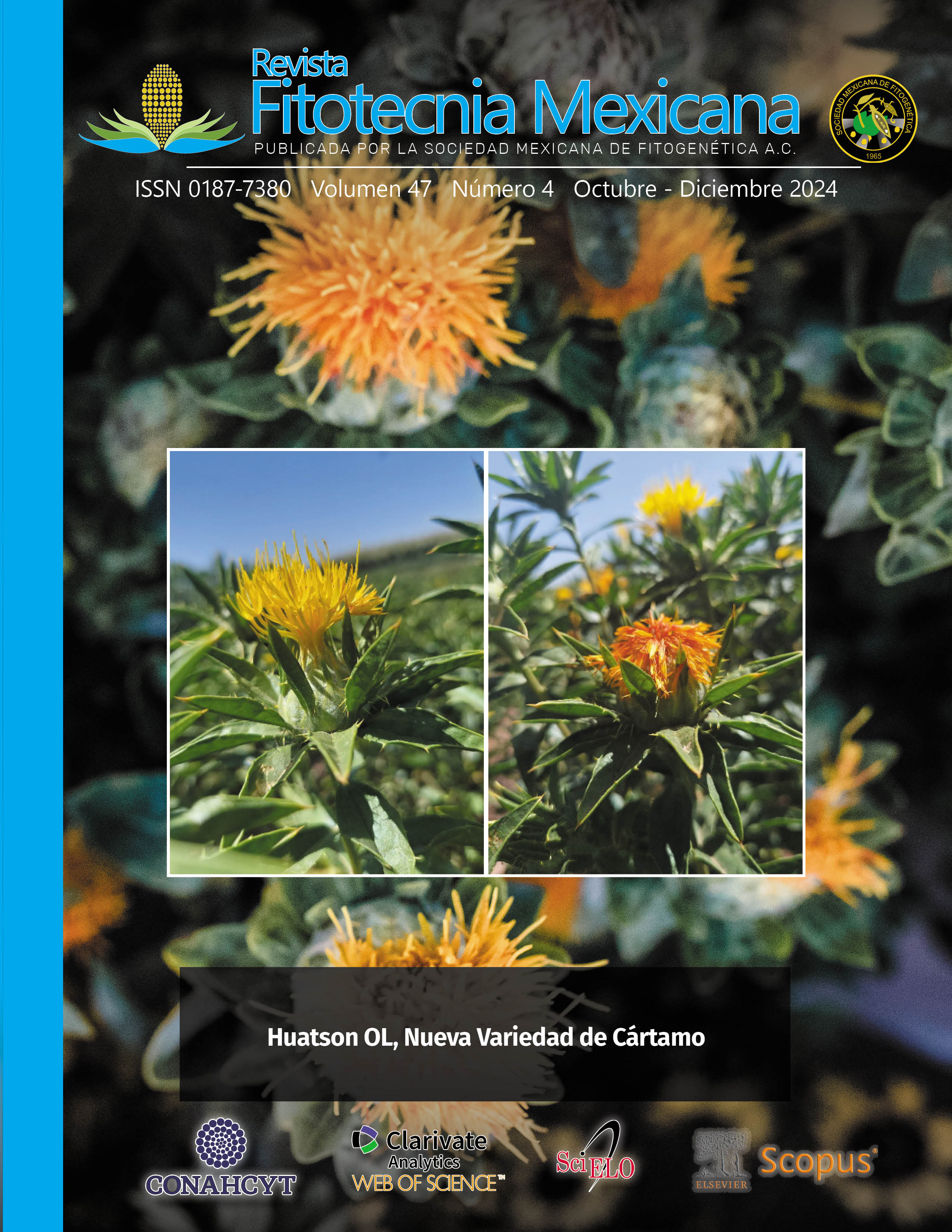IMPACT OF HYDROXYAPATITE NANOPARTICLES ON BIOACTIVE COMPOUNDS AND ENZYMATIC ACTIVITY IN BELL PEPPER
Main Article Content
Abstract
Hydroxyapatite (nHAp) nanoparticles obtained from phosphoric rock can be used as a nanobiostimulant in sustainable agriculture. The objective of this study was to evaluate the effect of foliar application of nHAp on yield and synthesis of bioactive compounds in bell pepper (Capsicum annuum L.) fruits developed under greenhouse conditions. Four increasing doses of nHAp: 500, 1000, 1500 and 2000 mg L-1, as well as the control (distilled water) were tested under a completely randomized design. Results indicated that foliar spraying of nHAp on bell pepper did not affect yield, but it did positively influence the nutraceutical quality and phosphorus accumulation in fruits. High doses increased bioactive compounds and phosphorus in bell pepper fruits, but decreased enzymatic activity. Foliar spraying with nHAp is an option to stimulate the biosynthesis of enzymatic and non-enzymatic antioxidants in bell pepper fruits.

